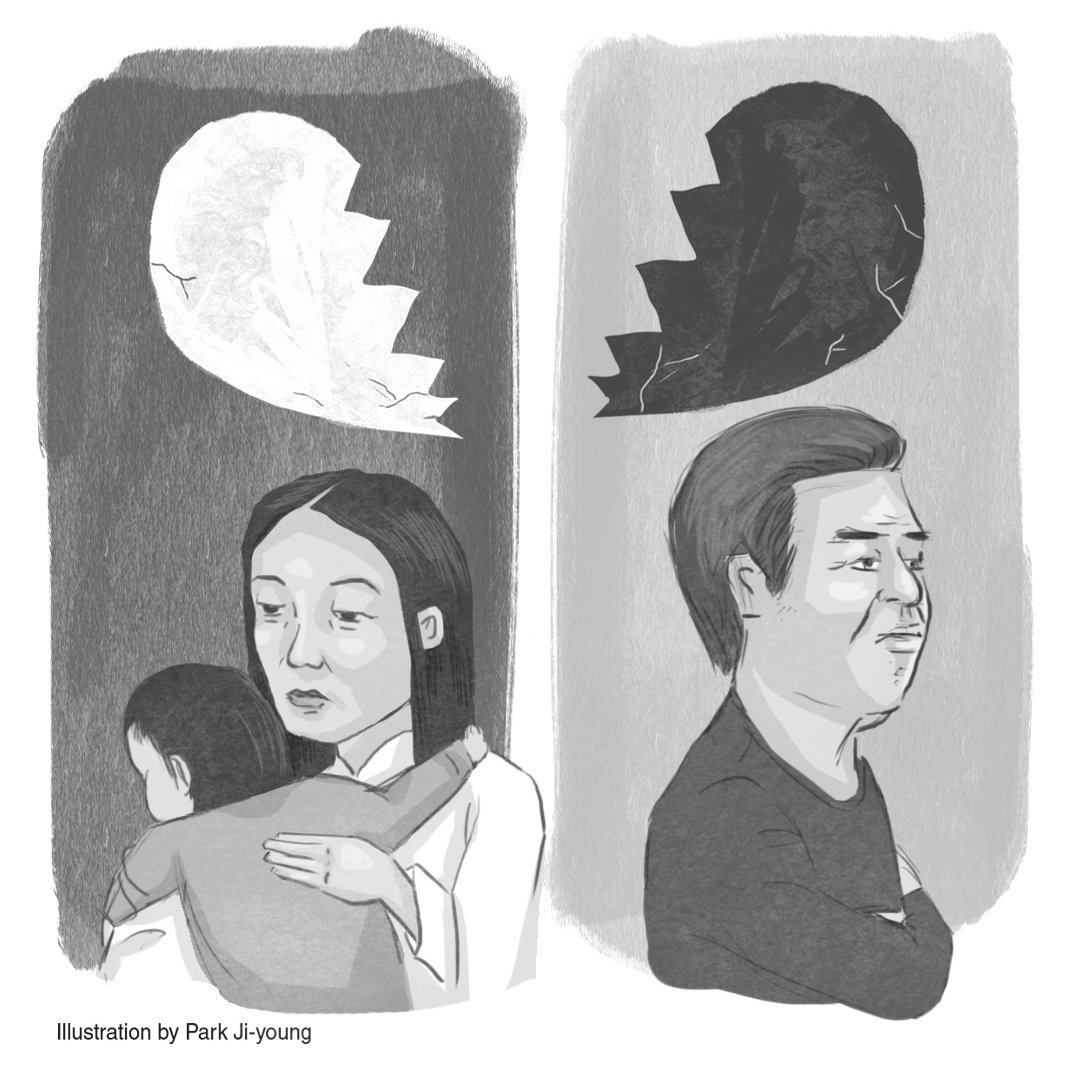[According to the law] (2) International marriages gone wrong
By Yoon Min-sikPublished : April 19, 2022 - 10:52
From international marriages, political asylum to run-ins with the law, there are a myriad of legal problems that foreign nationals can get embroiled in. The Korea Herald takes a look at some of the cases involving legal disputes of foreigners in South Korea. The following is the second installment of a three-part series. -- Ed.
For decades, there has been a custom of Korean bachelors from rural agricultural towns finding brides in lower-income countries with the help of international marriage brokers. Some of them end in divorce, and messy legal fights.
A Supreme Court ruling on Jan. 27, 2022, dealt with a Korean husband’s request to nullify his marriage to a Vietnamese woman, on the grounds that she had no intention of being his wife and that she used him to come to Korea and get a visa.
The couple met via a broker in September of 2015 and got married the same month, after which the husband intermittently visited his wife in Vietnam until she came to South Korea on June 8, 2016. The bride was 23 years younger than her husband, who was 43 at the time, and the couple butted heads over a range of issues until the wife started to get counseling later in the month.
Despite the counseling, discord between the two persisted and the wife -- the defendant in this case -- eventually left home in August 2016.
“Under such circumstances, even though the defendant left home shortly after she entered the country, it cannot be definitely said that there was no mutual consent of marriage between the plaintiff and the defendant,” the court ruling said, overturning the initial district court decision in favor of the husband.
“There is a possibility that the defendant -- a Vietnamese woman -- had entered the country with a true intention to get married and had given up on the marriage due to the language barrier, difficulty in adapting to the (Korean) culture, and differences in personality.”
For decades, there has been a custom of Korean bachelors from rural agricultural towns finding brides in lower-income countries with the help of international marriage brokers. Some of them end in divorce, and messy legal fights.
A Supreme Court ruling on Jan. 27, 2022, dealt with a Korean husband’s request to nullify his marriage to a Vietnamese woman, on the grounds that she had no intention of being his wife and that she used him to come to Korea and get a visa.
The couple met via a broker in September of 2015 and got married the same month, after which the husband intermittently visited his wife in Vietnam until she came to South Korea on June 8, 2016. The bride was 23 years younger than her husband, who was 43 at the time, and the couple butted heads over a range of issues until the wife started to get counseling later in the month.
Despite the counseling, discord between the two persisted and the wife -- the defendant in this case -- eventually left home in August 2016.
“Under such circumstances, even though the defendant left home shortly after she entered the country, it cannot be definitely said that there was no mutual consent of marriage between the plaintiff and the defendant,” the court ruling said, overturning the initial district court decision in favor of the husband.
“There is a possibility that the defendant -- a Vietnamese woman -- had entered the country with a true intention to get married and had given up on the marriage due to the language barrier, difficulty in adapting to the (Korean) culture, and differences in personality.”

While the lower court had ruled in favor of the plaintiff based on the fact that the marriage only lasted for a short period of time, the Supreme Court ruling took into consideration that the defendant took efforts to iron things out with her husband.
Another case involving a Korean-Vietnamese couple was a Sept. 3, 2021 Supreme Court ruling. This case was also filed by a Korean husband who sought to divorce his Vietnamese wife and get custody of their two children.
The focal point was the article 837 of the Civil Act on fostering children after divorce, which stipulates that custody of the children should be decided on “the children’s choice and age, each parent’s financial status and other circumstances.”
The Jeonju District Court granted the father custody despite admitting that the older child appeared to be more strongly attached to the mother, based on the fact that the plaintiff was more financially stable and the defendant -- as a foreigner - had poor communication skills in Korean.
Overturning the lower court’s decision, the Supreme Court pointed out that a belief that a foreigner with limited Korean language skills would not make as good a guardian as a Korean national was “abstract and vague.”
“South Korea has a firmly established system on public and other forms of education, and it cannot be said that a foreign parent’s Korean language skills has a significant bearing on the child’s growth and welfare,” the ruling said, warning that the previous ruling could be considered a discrimination based on a person’s place of origin, and that the foreign parent’s culture and native language must also be respected.
The ruling also pointed out that the defendant had had a consistent job since being separated, while the plaintiff had a job but had not been working.
By Yoon Min-sik (minsikyoon@heraldcorp.com)








![[Kim Seong-kon] Democracy and the future of South Korea](http://res.heraldm.com/phpwas/restmb_idxmake.php?idx=644&simg=/content/image/2024/04/16/20240416050802_0.jpg&u=)








![[KH Explains] Hyundai's full hybrid edge to pay off amid slow transition to pure EVs](http://res.heraldm.com/phpwas/restmb_idxmake.php?idx=652&simg=/content/image/2024/04/18/20240418050645_0.jpg&u=20240418181020)

![[Today’s K-pop] Zico drops snippet of collaboration with Jennie](http://res.heraldm.com/phpwas/restmb_idxmake.php?idx=642&simg=/content/image/2024/04/18/20240418050702_0.jpg&u=)